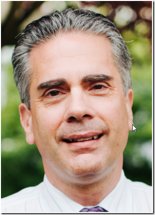In Trauma: The Invisible Epidemic, Dr. Paul Conti examines the most recent research, clinical best practices, and dozens of real-life stories to present a deeper, richer, and more urgent view of trauma. Every single one of us is affected by trauma, though some carry a heavier burden than others. Understanding its insidious effects and far-reaching complications is vital to charting the path to healing for all.
In the book, Dr. Conti traces a step-by-step series of concrete changes that we can make both as individuals and as a society to alleviate trauma’s effects and prevent further traumatization in the future, including the different post-trauma syndromes, how they are classified, and their common symptoms, an examination of how for-profit health care systems can inhibit diagnosis and treatment of trauma, and the argument for a renewed humanist social commitment to mental health and wellness.
Paul Conti, MD, is a graduate of Stanford University School of Medicine. He completed his psychiatry training at Stanford and at Harvard, where he was appointed chief resident. He then served on the medical faculty at Harvard before moving to Portland, Oregon, and founding a clinic. Dr. Conti serves patients and clients throughout the United States and internationally, including the executive leadership of large corporations, specializing in the complex assessment and problem-solving, as well as both health and performance optimization.
Selected Podcast
EP 1107B - Trauma: The Invisible Epidemic

Featured Speaker:
Dr. Paul Conti
Paul Conti, MD, is a graduate of Stanford University School of Medicine. He completed his psychiatry training at Stanford and at Harvard, where he was appointed chief resident. He then served on the medical faculty at Harvard before moving to Portland, Oregon, and founding a clinic. Dr. Conti serves patients and clients throughout the United States and internationally, including the executive leadership of large corporations. He specializes in the complex assessment and problem-solving, as well as both health and performance optimization. Tagged under